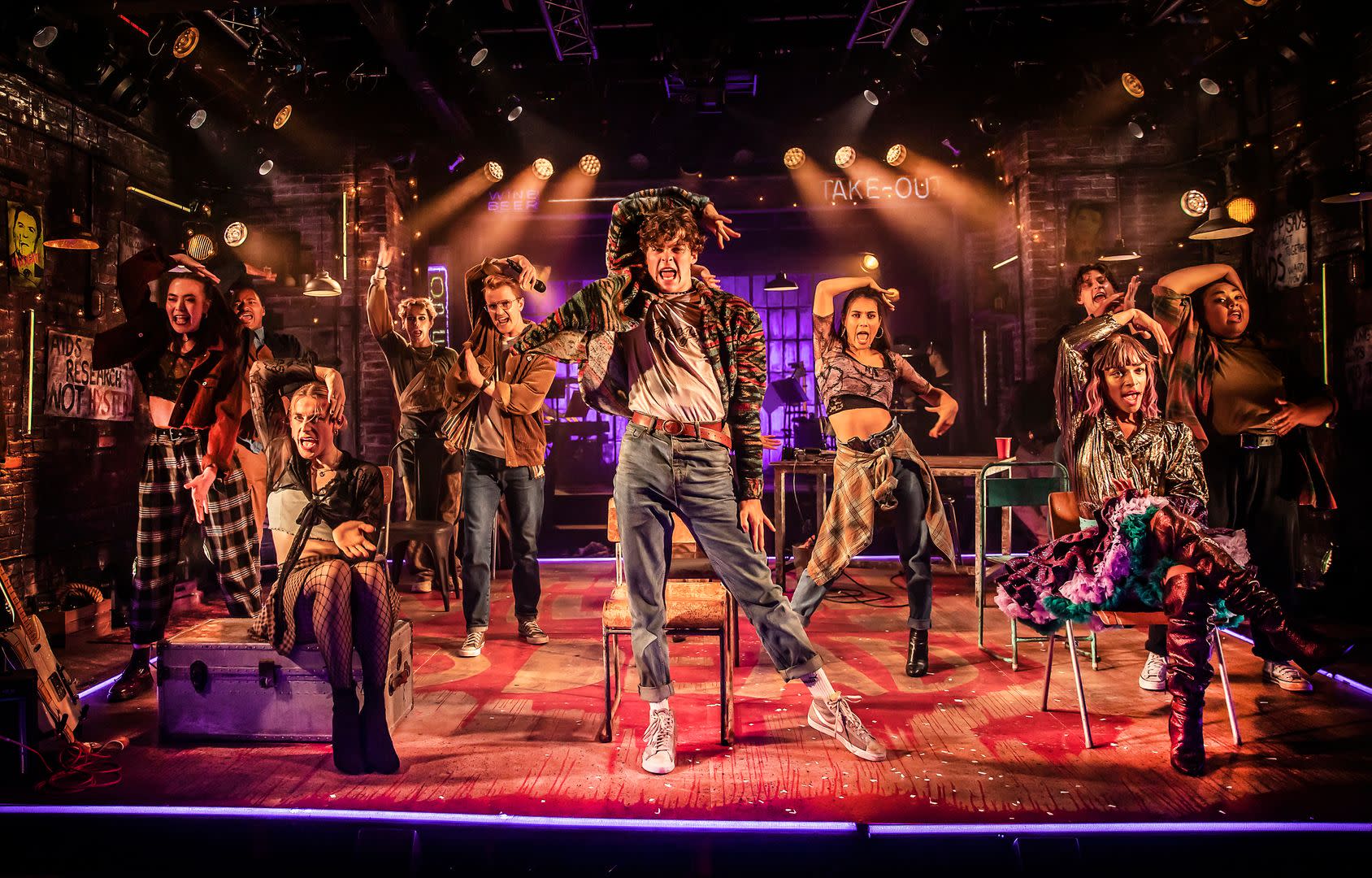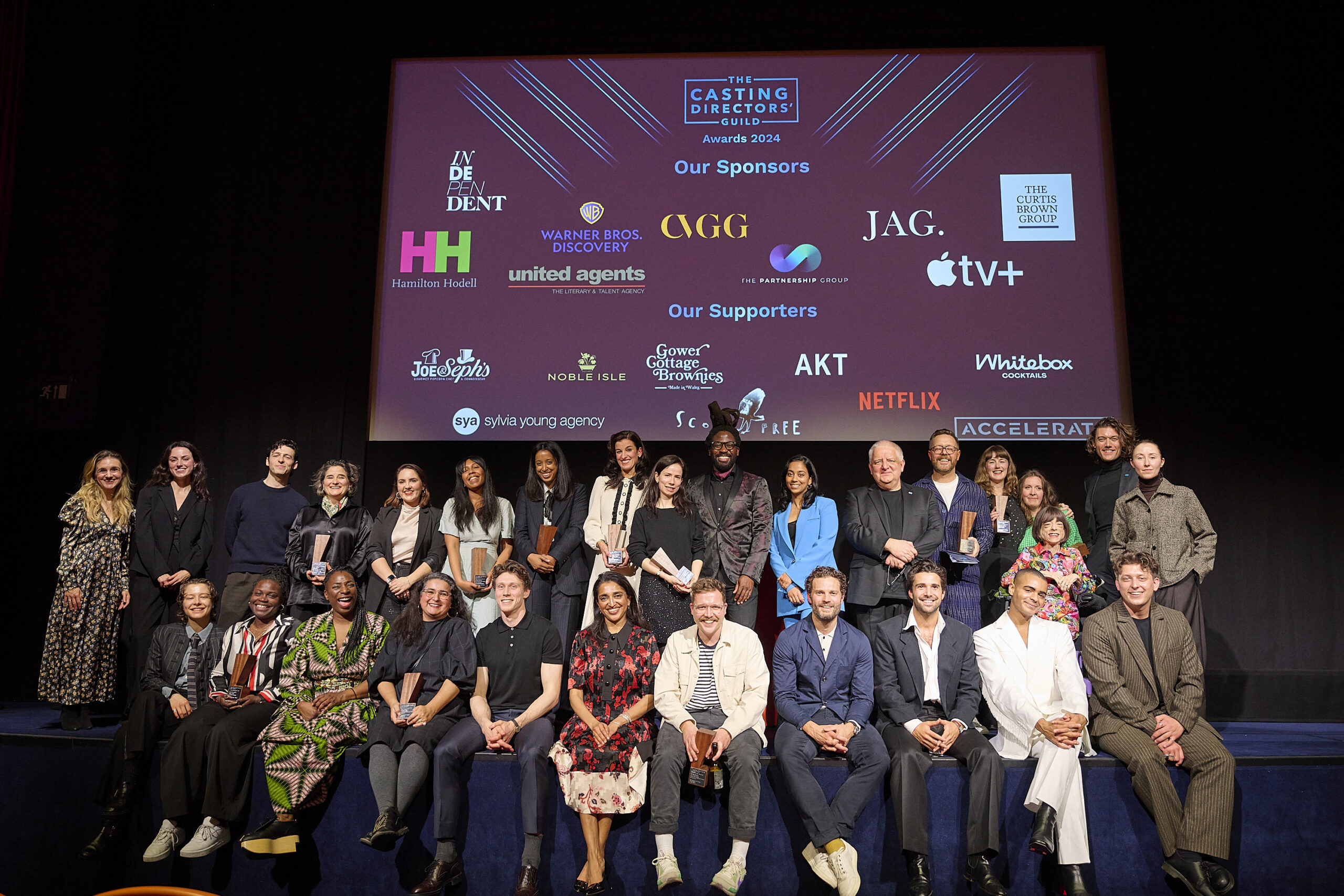Get to know more about husband and wife team James and Rosie Pearson, founders of the award-winning Pearson Casting.
When you cast a show that you truly love, it never feels like work to sit and watch extraordinarily talented people singing or reading scenes from the musical.
Can you explain a little bit about your background and how you got started in casting?
Both of us started as actors and vocalists. James worked in several West End and UK touring musicals and Rosie even worked as a presenter on Extreme Sports Channel. After we got married we wanted to travel the world together for a bit and so decided to do one contract at sea as vocalists. 11 cruise contracts later, working on musicals and production shows for different companies, we were invited by Norwegian Cruise Line to facilitate a casting for their new production of Legally Blonde in London as part of their audition tour.
We had always had an interest in casting and had written shows and concepts for the cruise industry prior to starting to cast for them, so we knew we wanted to transition into creative roles after performing. Over the year that followed, we flew back to Florida regularly to work alongside the Norwegian Creative Casting department and toured with them through Europe and some of the USA. We learnt about the complexities of casting multiple skillsets at a very high level and worked with amazing Broadway creatives like Kristin Hanggi and Patti Wilcox.
An opportunity then came for us to cast a land production of Legally Blonde at Aberystwyth Arts Centre, directed by a good friend of ours Anthony Williams (the show went on to be nominated for Best Ensemble), and from there we just never stopped working. We were given some incredible opportunities by people who trusted in us, but also we worked very hard to prove that we were the right people to trust!
What inspires you in your job?
There are so many incredible casting directors who have gone before us, and so many of our casting colleagues in the industry inspire us every day. The shift in theatre recently has been so exciting, in terms of the inclusivity and representation that we are all able to bring to audiences now, which is incredibly inspiring. We are exceptionally lucky to work with forward-thinking and dynamic producers, directors and creatives who share a collective vision for the future of the industry.
Actors are also incredibly inspiring. When you call an actor in at 10:30 in the morning and they tell you they’ve just arrived on a 5:30 am bus from their current tour city prepared and full of passion for the project, we are reminded of the incredible professionalism and commitment in this industry. It’s pretty humbling.
What was the most memorable part of the casting process for ‘Rent’?
James auditioned as an actor for Rent when the original production went on in London and went in several times for both Roger and Mark, so the show has always had a very special place in his heart. It’s probably a defining piece of theatre from his generation. Being able to help shape Luke Sheppard’s vision for this new imagining of the musical was incredibly exciting, and the talent that came into the room was electric.
Obviously, Covid threw everyone a few curveballs, and the final part of the casting ended up being via zoom and self-tapes. I think everybody experienced some unconventional casting methods in order to be able to finish off projects. We had to borrow the dressing room in a theatre to audition two actors on one afternoon around their schedules and then film to send to the team. One of them booked Rent, the other is currently in another show we cast on the West End, so it was well worth the meeting! The producers, Joe and Will at Hope Mill Theatre, were also incredibly supportive and the sacrifices and commitment from them that it took to get the show cast, rehearsed and open through a pandemic were unbelievable.
When you cast a show that you truly love, it never feels like work to sit and watch extraordinarily talented people singing or reading scenes from the musical. It’s always incredible to be able to cast established performers alongside new graduates and see the evolution of the show from casting to opening night.
When you get started on a project, how do you start looking for your perfect cast?
The first thing we always do is sit down and chat with the director and producers to try and establish what their vision is for the show. With both new work and revivals it’s important to understand the tastes of the lead creatives, and the overall picture of what the piece is trying to deliver.
We’ll then start compiling lists, alongside the creatives, of people that we’ve seen in other productions; people that we’ve cast – or nearly cast – graduates that we’ve seen and people that we want to work with. More often than not a casting director will add people to a list that are just really lovely to work with (as well as fitting the brief!).
We then send out a Spotlight breakdown and from there we will chat with agents about the availability of people on our lists, or invite suggested actors straight into audition. Whether we request self-tapes first depends on the number of casting days we have in the room. Self-taping became much more normal through the pandemic and it allows us to see more people in first rounds and to see people on their own timeframe. It means that people don’t have to travel down from Scotland or Birmingham for a first round audition, and can tape around their other commitments.
Once we get into the audition room, then the director, musical director and choreographer are much more involved in shaping what the final cast looks like, and we will work alongside them to deliver a lineup of talent that everyone is excited about.
Literally, no one wants you to fail. You’re there because we think you’re right and you could book the show. Take that in with you – we want you!
Auditions can be nerve-wracking for many performers, do you have any advice to put them at ease beforehand?
We get asked a lot about how to manage audition nerves, and we know from experience that sometimes these get worse as time goes on not better! It’s really important to find space prior to your audition, either at a studio or at home depending on the style of audition, where you can put yourself in the right headspace. Some people love to chat with other actors prior to going into their audition, it makes them feel relaxed and not think too much about the audition. Other people like quiet and to really focus on what they need to do. Find what it is you need and dig into that before your audition – whatever helps manage your nerves when you get into the room.
The most important thing to remember is that everybody in that panel wants you to be right. Everybody has invested in you to get you to that point. The producer has invested hundreds of pounds in studios, creative day rates, pianists etc, the casting team have invested hundreds of hours in watching your materials, reading your CV and liaising with your agent to get you to that appointment. Literally, no one wants you to fail. You’re there because we think you’re right and you could book the show. Take that in with you – we want you!
Self-taping is hugely popular for first-round auditions, do you have any tips to help performers nail them?
Self-taping has become a new skill set that everyone has had to develop very quickly, especially in theatre where it has never been the norm. We are less concerned with a professional studio environment, and more with ensuring that your sound and light quality is good. If you have a dark apartment with little light, there are very cheap light rings you can invest in so that we can clearly see your face. Make sure if you are doing anything involving singing that everything you send is in pitch, and that you are really happy with the final result. You can film everything on an iPhone, and that is perfectly good enough quality for a self-tape.
A big tip is getting used to fixing your eye line – we always suggest cutting out a face from a magazine (or even just the eyes) and sticking it to the wall.
If you are filming a dance combination – make sure we can see your feet. Go outside if you need to, there are no rules!
Make sure that you have read all the directions on the self-tape request from the casting director – there are often tips around accents, or whether they would like the scene directed to camera.
Oh, and please label your tapes as requested by the casting director – we’re often forwarding them on to the creative team and so the admin can be a nightmare if you don’t help us out by labelling them correctly.
At the end of the day, self-taping is just another step in your audition process – be prepared, give yourself time and space to get a cut you are proud of and don’t put too much pressure on yourself, we still just want you to be right.
Thanks to Rosie and James for taking the time to answer our questions. Pearson Casting are based in London, Liverpool and New York and work across theatre, film, TV, commercials and live performance.
Main image is a production still from Rent.












